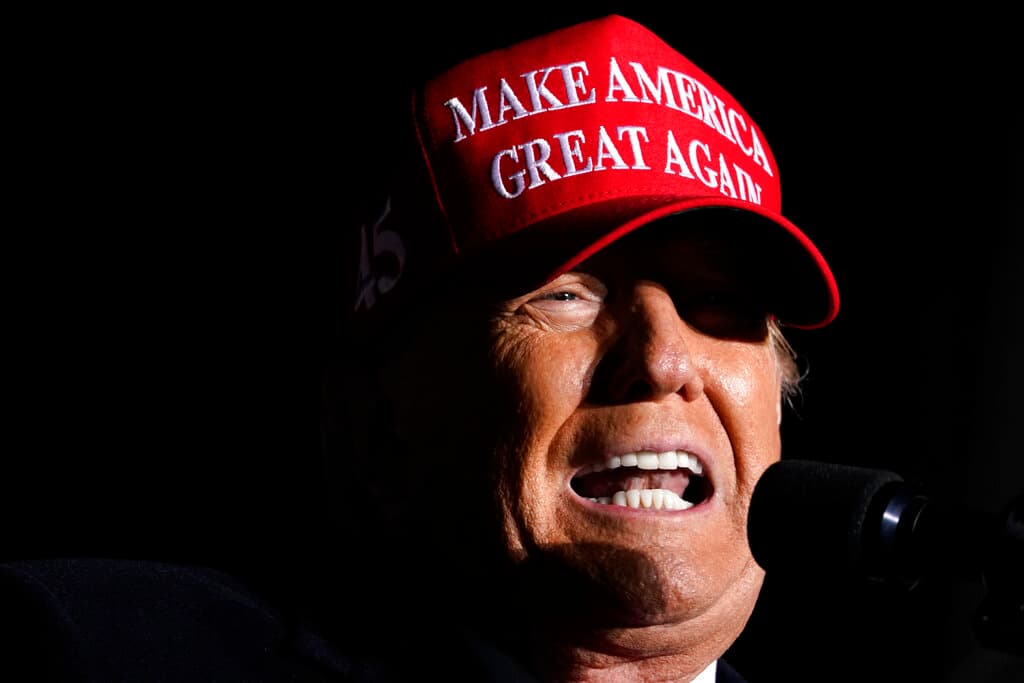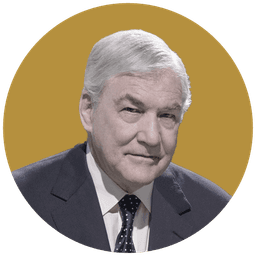America Is, as the People Prepare To Speak, on the Brink of a Seismic Political Shock
. . . And Trump will emerge with greater control than ever of the GOP.

The United States is on the edge of a seismic political shock in the midterm elections on Tuesday. The events that have produced the current disturbed conditions in America were difficult to foresee.
After leading the world to the greatest and most bloodless strategic victory in the history of nation states in the Cold War, at the conclusion of which America’s one rival as a superpower, the Soviet Union, dissolved peacefully into a shower of splinter countries, instead of triumphalism or even serenity, the United States descended into negative introspection.
For those of us in Canada who have spent our lives listening to oratorical, poetic, and lyrical recitations of the American mythos — the land of perfect justice that the world envies and is the only place where people dream of success and then attain it — a de-emphasizing of the “God Bless America” school of political science was not entirely unwelcome.
There has never in the history of the world been anything remotely like the rise of the United States from 2,500,000 colonists and 700,000 slaves in two long lifetimes between the end of the American Revolutionary War in 1783 and the end of the Second World War in 1945.
The United States had led the Allies to the defeat of the Nazis and Japanese imperialists and possessed one half of the war-ravaged world’s gross economic product, had a nuclear monopoly, and was the home of history’s most ambitious international organization (the rather disappointing United Nations).
The key to America’s success was not only the relatively democratic British tradition and the vast rich center of the North American continent to populate with ambitious seekers of a better life from all parts of the old world; much depended upon the quality of its leadership generated by the operation of its unique Constitution.
Washington, Franklin, Jefferson, Hamilton, Madison, and John Adams were astonishingly talented men from such a small population. But 160 years later, Roosevelt, Truman, Marshall, Eisenhower, and MacArthur were leaders of comparable ability and integrity from a country thirty times as populous.
And in between, when the Union had to be saved and the slaves had to be emancipated, arguably the greatest of all democratic statesmen, Abraham Lincoln, miraculously emerged from the frontier of America to accomplish those mighty tasks.
Accomplished American statesmen and inspired American strategic policy saw off the international communist threat to democracy in the Cold War. The world must never forget nor fail to be grateful for how much it owes to the United States in advancing democracy and the free market, (though it is not now a particularly well-functioning democracy).
The generalization of prosperity in the 75 years that followed the Second World War with tens of millions of people moving upwards out of poverty every year, is primarily the accomplishment of the rapidly rising societies themselves, from Israel to South Korea, but the United States, by far, is the greatest benefactor in this unprecedented worldwide progress.
As the United States grew, and then as it grappled with world wars and strategic rivalries, it sang its great anthems and proclaimed its patriotic exaltation of soul. But when it arrived at the summit of history as the world’s only superpower, it was time to come to grips with the semi-dormant problems of the legacy of slavery and of America’s revolutionary origins.
The turbulence in America now which those who have traditionally regarded America either with envy or affected condescension (or more often a hypocrisy that combines both attitudes), happily interpret as the beginning of the decline of America, is nothing of the kind. It is a challenging and purgative national experience but it could not be avoided or postponed any longer, and is starting to pass.
No society in history has been so successful at raising a previously subjugated section of its population from the monstrous injustice of racial servitude to equality. But in doing so the long-repressed anger of African-Americans was bound to be asserted.
And because the United States seized sovereignty for itself and took up arms against its colonial parent, the right to bear arms, which at the time it was proclaimed was a matter of national pride and survival, was bound to magnify the difficulties of African-American expression of resentment for what President Lincoln called “the bondsman’s 250 years of unrequited toil,” followed by a century of degrading segregation.
As with other countries, much popular American history is bunk. The American Revolution was essentially the demand of Americans for independence which was largely a grubby dispute over taxes. The British doubled their national debt in the Seven Years War, largely to expel the French from North America to please the Americans, and only then did they invite the Americans, as the wealthiest British citizens, to pay taxes other Britons were paying to help retire the deficit.
Jefferson and Thomas Paine and others improvised the nonsense about “no taxation without representation:” no sane community agrees to tax itself unless it has no alternative. The Black nationalist charge that America was at all times a slavery-inspired enterprise is simply and demonstrably a lie.
The socioeconomic tides have collided. America won the Cold War and government became effectively a bipartisan enterprise operated for the benefit of the upper-middle-class and the wealthy. For the first 15 years of the new millennium, the middle and working classes made almost no progress in disposable income, a phenomenon that always stirs American democracy to electoral change.
Only Donald Trump saw that, and only he in all of American history translated the American love of the spectacle and the star system into a method for converting celebrity and notoriety into election to the nation’s highest office. By incentivizing investment in disadvantaged areas, he effectively eliminated unemployment, as he presided over both the near elimination of illegal immigration and dependence on foreign oil.
He poached heavily in the traditional Democratic Party fiefdoms of the African-American and Latin American communities. The complacent bipartisan Bush-Clinton establishment was taken by surprise and has fought back savagely, showing that they were not a decrepit establishment.
Yet they have strained the system by recourse to manipulation of the criminal justice system to attack their enemies. The mistakes President Trump’s enemies made were to put an incompetent into the presidency and in seeking the broadest possible coalition, to hand far too much authority to policy extremists.
On Tuesday, the people will speak and the correction of these errors will determinedly begin. Almost all the Trump-endorsed candidates will be victorious, he will take greater control than ever of the Republican Party, the Congress will undo what it can of the incumbent administration’s extravagance and will turn congressional investigative powers against Trump’s enemies.
Wokeness is ending and will not be widely lamented. Close to half mistrust the last election result. By Canadian standards, the United States is corrupt and violent, but it is also magnificent in its way, and the world depends on it. The United States is a democracy, and it governs itself as it wishes. It has reached the point of self-confident maturity where it doesn’t much care what foreigners think of it.
______________
From the National Post

